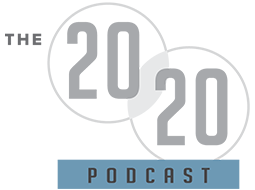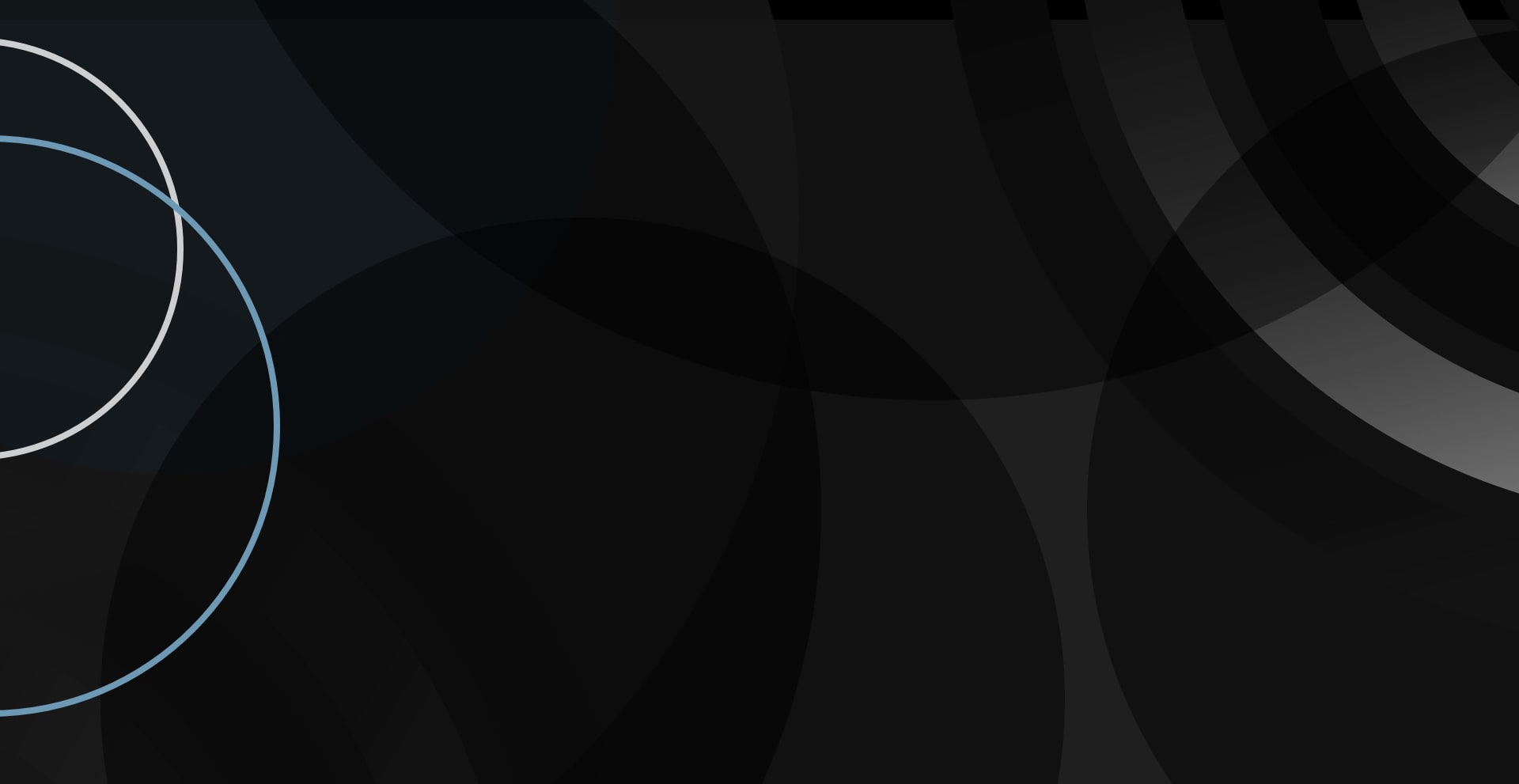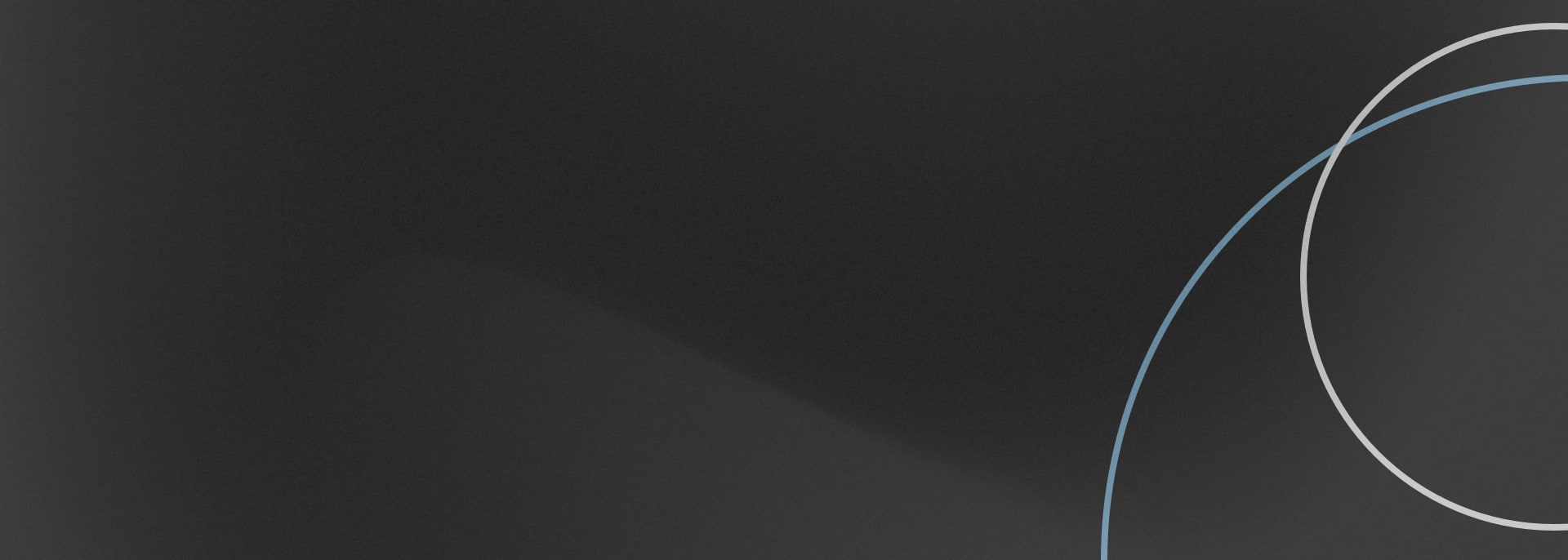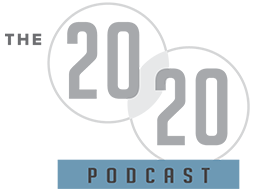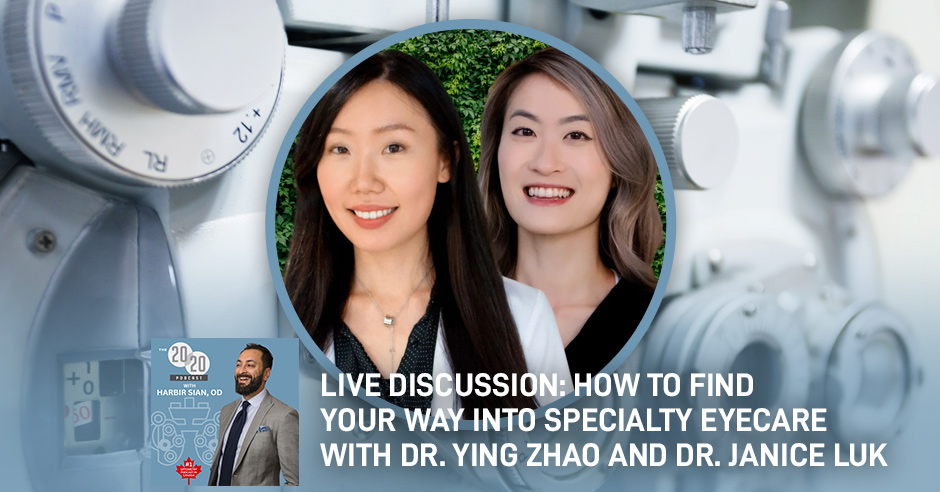
Specialty eyecare is one of the fastest-growing opportunities in optometry — and two trailblazers are showing how to make it your own. In this live interview, Dr. Ying Zhao shares how she turned a personal passion for myopia management into a thriving specialty practice, while Dr. Janice Luk reveals how she built expertise in dry eye and beauty-related ocular conditions by stepping outside her comfort zone. Together they discuss overcoming imposter syndrome, collaborating with other industries, leveraging social media to attract patients, and building a specialty that elevates optometry beyond refractions. Whether you’re a new graduate or a seasoned clinician, their insights will help you carve your own path into specialty care.
Connect with Harbir:
—
Watch the episode here
Listen to the podcast here
Live Discussion: How To Find Your Way Into Specialty Eyecare – Dr. Ying Zhao and Dr. Janice Luk
Thank you, as always, guys, for taking the time to join me here to learn and to grow. Just doing a very quick intro, just like I did last week, to introduce part two of our new grad live interviews that we did a few months back at the beautiful Kent in downtown Vancouver. In case you missed last week’s episode, this was a live podcast interview that we did in front of a live audience.
In particular, it was directed towards new grads, at least in the audience. I think you’ll find the content is relevant to anybody, whatever stage of your career you might be at. Last week’s interview, if you missed it, was about business ownership, getting into business ownership, cold start versus buying into a practice. This week, we’re going to be talking about developing your expertise and becoming an expert or getting into some specialty care within optometry.
Again, whether you’re a student, a new grad, or partway into your career, I think there’s going to be so much great value in this conversation for you. Make sure you listen to the whole thing because after the interview is done, we also have a Q&A that we did with the audience, a few really great, insightful questions, and great answers from our guests, our panel on the podcast. Here we go. I hope you guys love this interview.
—
Thank you so much for joining me again, guys, to learn and to grow. For our second very special episode, a live episode. Live episode here, we’re at the Kent in downtown Vancouver. For the very first time, well, now technically the second time that I’ve ever recorded an episode of the show with a live audience, and our amazing live audience has been so supportive.
Our first interview, if you didn’t catch it, just the one that we posted, I suppose it’ll be last week when you’re hearing this, was with Dr. Sarah Kirby and Dr. Michelle Mann about getting into business ownership and their different paths into business ownership, whether that’s partnering into an existing practice or starting a cold practice and we had some great Q&A after. If you missed that one, please go back and check it out.
Even if you’re an existing veteran optometrist or existing practice owner, I think you’re going to find a lot of value in that conversation. Before we jump into this one, I have to make sure I say a huge thank you to our partners for this event, Essilor Canada, Portfolio Planning, and of course, Thea Pharma Canada, for all their support in helping me bring this event to life.
This was a vision that I had a while back, and I’m so grateful. It’s turned out amazing. We have this amazing audience. We have a beautiful venue. We have great food. We have amazing videographers, amazing guests. It’s just perfect. Also, one other sponsor that I didn’t mention is FIGS scrubs. FIGS has been generous enough to donate some gifts for you all. In your gift bags before you leave, you should find a little something in there.
We are also giving away one set of FIGS Scrubs to a lucky winner at the end of the night. We’re doing a little prize draw. Stay tuned for that. Finally, we have our amazing guests here, Dr. Ying Zhao and Dr. Janice Luk, who are going to be talking to us about specialty eye care. Dr. Zhao, working at Avenue Eye Care, is a specialist or an expert in myopia management, and Dr. Luk is an expert in dry eye, in beauty, in all sorts of ocular surface-related issues, and you work at Mount Pleasant and Hollyburn Eye Optometry in North Vancouver. Is that correct?
That’s correct. Thank you.
A big round of applause for our amazing guests, please. Thank you, everybody. We’re going to start with your journey into specialty care. Similar to the question I asked our previous guests, when did you know you wanted to get into some form of specialty, and what was it that made that click for you? Where did that come in for you? Janice, let’s start with you.
First of all, thank you for having me. I’ve always been fangirling over your podcasts. Every time I’m on it, I’m like, “I was there listening to it five years ago. It’s so grateful.” Thank you.
It’s my pleasure. Also, the little humble brag in there every time I’m on it. I’m just playing. That was good. I like that you slipped that in.
The “Aha!” Moment: Discovering Your Optometry Niche
Specialty care. I actually got into dry eye and beauty trends during COVID, and it came on very unexpectedly, to be quite honest. I had so much free time as Dr. Mann talked about earlier as well. You start doing a lot of deep diving in terms of what you can actually look into. For me, it was the lack of what we learned in school. I never learned about beauty trends, eyelash extensions, lash lifts, and tints when I was in optometry school.
I’m not sure if that’s changed. However, that made me wonder, these are patients that are coming in through our door every day, and they have all these beauty trends on their eyes. I don’t know how to address these concerns that they’re having. It became a deep dive in the beginning for me to actually learn about these trends so that I could better educate patients.
Was there something that you saw in a patient, or what was it that really flipped that switch for you?
It was not just one patient, but multiple patients that we saw in our chair. Let’s say with lash extensions, and they come in with tons of blepharitis or build up on the base of their lashes. How do we educate them to empower them to learn about the potential damage they’re causing to the front surface of their eyes while still maintaining these beauty trends that make them feel beautiful?
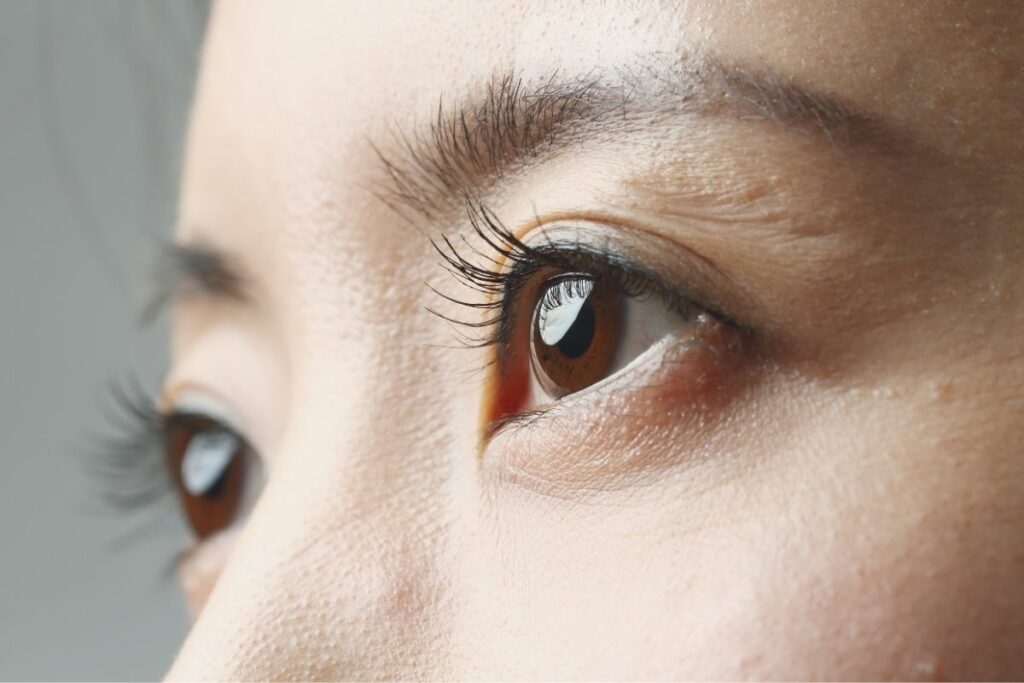
Got it. Dr. Zhao, how about you? Now you’re into myopia control, and you work in a practice that is pretty heavy in myopia control. Where along the journey did you feel that you wanted to start to lean more into a specialty?
Mine’s a little bit more of a long-winded answer, but I really got into myopia control for three reasons. The first one is that I actually underwent myopia management myself as a child. It certainly wasn’t the standard of care back then, so my parents really had to go out of their way to find a solution for me. For that, I’m really grateful, but that also sparked a curiosity in me to go into optometry school.
That leads me into the second part, where when I entered uptown midget school, I realized they don’t actually teach a whole lot about it, just like what Janice was mentioning. Coming out of town, midget school, I was really laser-focused on finding a clinic that already does it. The resources are already there. Luckily for me, it was when my Cyprus came out, and that was a huge game-changer because you could just fit it right away. Whereas for Ortho-K, you really need to build a foundational knowledge.
That leads to my last part, which is when I started fitting my site and eventually Ortho-K and atropine, I realized it was really joyful for me to see these patients coming back for follow-ups, to see their confidence soar, their eyes are really healthy, and their myopia is controlled or maintained. That’s when I realized myopia control is the thing for me.
From Passion To Practice: Finding Your Specialty Clinic
I love that. The confidence thing and their enthusiasm when they come back, especially with Ortho-K. I’m actually quite new to Ortho-K. I just started fitting in the last couple of years. It’s so amazing after about that one-week period when they come back, no glasses. They’re just so happy. It’s pretty amazing as a practitioner, and it encourages you to keep going. You said something in there that is valuable, especially given our audience is new grads and they’re either just starting their career or some of them just finished school, and have not yet started their official job. How did you go about researching that clinic? You said you were laser-focused on finding a practice that was already doing myopia management. How did you go about finding that practice?
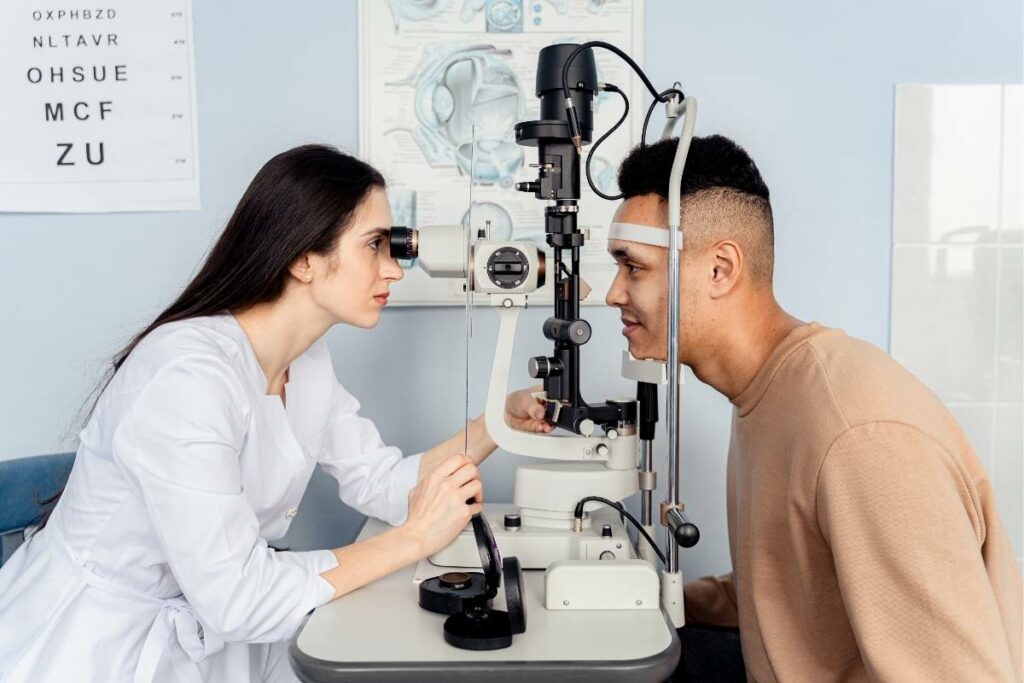
I literally went on Google and just typed in myopia control Vancouver Optometry Clinic. I literally emailed every single one out there. I found Avenue Eye Care because my mom is a patient there. She said, “Why don’t you put it in your resume? I really like that clinic. It’s really close to home.” I just literally went in and dropped my resume off, and then took a look at what the clinic was like, and went in for the interview and got it on the first try.
That’s amazing. I think that’s actually a really great piece of advice. We often think that we have to go to, and actually, maybe this will help me answer a question that Paula was asking me earlier, which is, “How do you go about finding a job? How do you go about finding a clinic that you want to work at?” Of course, there are job posting boards, for example, OptiMart, BCDO, and you’ll go on there, and you’ll see lots of clinic owners.
Like myself, for example, I have a job posting on there for clinics, a certain number of days or hours or whatever it might be. Doing this is another way of approaching it. We have so many other ways of finding work these days or creating relationships these days. Again, Instagram. I’ve had an optometrist reach out to me on Instagram. “Are you looking? I’d be interested in working for you,” so on.
Personally, I don’t find that strange at all. I think that’s fine. If that’s what’s available, that’s great. That’s your first point of contact. We still have to go through the professional steps of a resume and come in for an interview. If that’s how you got in touch with me in the first place, I think that’s great. I think the fact that you went through that research. When you found Avenue Eye Care, did you call? Did you just walk in and give a resume? How did you take that first step?
I think I just went in with my resume, I dropped it off at the front desk, and just waited for a call. I think it was the next day. Luckily for me, one of the associates was leaving. There was actually an open spot in a month. You can just test your luck, go in, and introduce yourself. I think it makes a big difference.
It does. I think that somebody’s willing to take that first step to come in and connect. That’s really powerful. Again, as a business owner, I see that this person in front of me is willing to go out of their way and maybe even make themselves a bit uncomfortable to come drop a resume off. I think that’s really valuable. Janice, in your case, you were already a couple of years into your career at that point. Where were you working when you had that revelation about lashes and blepharitis and all that?
During COVID, I was actually in Ontario. I was born and raised in Ontario, and I moved out to BC three years ago. When I first moved out to Victoria instead of Vancouver, it was because, like Dr. Zhao, I was looking for a specific clinic that had a dry eye clinic, essentially. The clinic that ended up working for it didn’t have an existing dry eye clinic. I actually helped them to start one. That was the beauty of it, that you can work with the practice owners and get to know them and what they want to do with the clinic, and then leave them. They knew I was leaving the clinic and not staying long-term. It’s almost like succession planning for the clinic to make it run smoothly like a well-oiled machine.
Beyond The Comfort Zone: Fully Embracing Your Optometry Specialty
That’s awesome too. I think that’s such a different journey, a different story there that you went and you actually developed. You went into an existing specialty clinic, and Janice, you went into a practice where you started your specialty. I think another thing that many new grads should know is that if you have a passion for something, you can go into an existing clinic and actually start something up to help you practice that way.
If you have a passion for something, you can go into an existing clinic and start something up to practice that way.
I want to ask you guys about when you decided you wanted to do this. How did you really lean into it? It’s one thing to say, “I want to do a little dry eye. I want to dabble in a little bit of myopia, maybe it’ll fit some Ortho-K,” or whatever it might be. When did you decide, and then what steps did you take when you decided I’m going to lean into this and make it my thing?
It’s actually funny you ask, Harbir, because you’re actually the one who inspired me to do it. During COVID, I don’t know if you remember, but you did a webinar on personal branding in this digital age. You were basically encouraging the audience to start our own social media presence that’s not associated with a clinic or an organization. I was looking for a project to do at the time, like Janice. I was thinking, “In this space, I don’t see any accounts that are dedicated to biopier control.” I decided to start one, and many years later, it took me down this path that I never expected. This is a very full-circle moment for me. Thank you.
That’s awesome. Thank you. That’s really cool. I’m glad that I could play a little bit of a role in your journey. We’re going to come back to that because you made that decision, and you had to put yourself out there, and there’s a lot that comes with that. When you started to do that, what did you see? What started to happen when you built that channel and you started to put content out there? What did you find as far as people coming to you or patients coming to you, and you established yourself that way, and you saw your practice grow? How did that experience go for you, and over what period of time? Was it a couple of years, 3, or 4 years?
I feel like the effect was pretty immediate, maybe because there were a lot of people on social media at the time, but I think I was mainly creating posts that were frequently asked questions by parents and that maybe resonated with a lot of my audience. In the beginning, when I started the account, I was thinking that if I could just get one Ortho-K patient, the money would be worth my time. I think I got way more than that, and that motivated me to learn more and do more. I think just by talking about it more and more, you get more and more passionate about it, obviously.
The more you talk about it, the more passionate you become.
There are a couple of positives to that. One is you get new patience, which is one thing you want, but then you build more confidence for yourself, you educate yourself, you become more of an expert, a self-fulfilling prophecy when you start putting out content like that. That’s really great. How about you, Janice? Was there a point where you felt like you really leaned into it, and what did you do at that stage of your journey to really lean into becoming this beauty dry eye expert?
I would not say I’m an expert yet because I’m learning every day.
I know you’re very humble. That’s okay, but you are somebody who has an expertise in this area. Let’s say.
I have an interest in it. I guess the moment I really committed to this was when I decided to go completely out of my comfort zone into a conference that was completely not optometry-related. Two years ago, I actually went to LashCon, which is a lash extension conference. I know. He laughs.
There’s a conference just for lash artists?
Lash artists, yes. What they do at this conference is literally over a thousand lash artists, I gather. They’re Canadians who go to, but it’s based in the States. The last couple of years, it’s actually been in California. What they do is that they go and learn about the business acumen, different arts, and the technique for lash extensions. I wanted to see what this industry was all about because I really knew nothing about it. I was mind-blown at first by how large the industry was for one. Two is how little we truly know as optometrists about this actual industry and what’s happening to our patient or their clients when they’re applying these lash extensions on.
That’s wild. I can be honest. There’s a whole conference, and it’s not new, obviously, it’s been going on for one. You went for the first time two years ago. I remember that you went, and it was like eye-opening, pardon the pun, but you went again. Tell us about that experience from your first visit as an attendee. Just scoping it out and then what?
When I went the first year, I was very gracefully accepted by the two owners or the founders of LashCon, and they were actually quite taken aback that I was there. Part of it was, “Are you here to scrutinize us?” I’m like, “No, I want to actually learn about the industry.” After that, lots of conversations actually.
It opened a door to a network in this entire industry, where we really need to learn more about. They wanted to learn more about how lash extensions affect eye health, too. It became almost like a full circle moment in the sense that collaboration needs to exist and not just from healthcare to healthcare, but from healthcare to beauty as well. That’s my pun or my line, bridging the gap between beauty and eye care.
Now, what I really aim to do is to educate lash artists as well as other beauty professionals about the eye itself. They are very receptive because they don’t have this education. Last year, when we went back to LashCon, I actually did speak and spoke on ocular health, and there were lash artists who came and wanted to learn about how they were impacting their eye health, too.
This is what I was alluding to earlier about paving new paths. Again, we come out of school, we think primary care or maybe even specialty care, glaucoma, cataract, the stuff that we know we’ve been taught, and we end up with blinders on, and we just do that for our whole career. There’s so much more out there, and Janice is a perfect example of creating a whole new path here. There’s going to be so many other optometrists now after you because that industry is so huge, and it’s such a huge opportunity there that we’ve just been missing all this time. You’re now creating this.
It’s not going away. How can we best empower our patients to actually take onus of their eye health while still maintaining things that they want to do. The lash chart is, too, because they’re the ones who see our patients more than we see our patients. I think education is the whole stem of how this started. I just want to pass it on to the last chart so that they can pass it on to our patients.
Conquering Imposter Syndrome: Owning Your Expertise
Again, there’s so much opportunity here to create these relationships and partnerships and change your career as well. You could become the person who helps lash artists understand eye health better. There’s only one Janice, and there are a lot of lash artists out there. Trust me, there’s a lot of opportunity. Thank you to Janice for taking that step out of your comfort zone to create this whole new connection.
It’s been fun.
On that note, you’re doing something that very few people, if anybody, has done, and you’re building this level of expertise in your area and yourself in myopia management. You put yourself out on social media to showcase yourself as an expert or having expertise in this area, and there’s something that comes with putting yourself out there.

That discomfort and the term that we all know is imposter syndrome. The second you start putting yourself out there, you start to feel like, “Who am I to do this? Am I worthy of this spotlight or whatever this position I’m finding myself in?” Believe me, I cannot imagine that there’s a person who hasn’t felt it. Now, maybe there are people who feel it to different degrees, and that’s myself included.
Certainly, like putting this on the first time I’m recording a live podcast interview with other human beings sitting here listening to us, I get a little uncomfortable, like, “How come I’m here? Why am I doing this?” These are questions that I’m sure we all ask ourselves. I’d love for you guys to share with us, if you don’t mind, how much of that you have felt, maybe specific instances where you remember you definitely felt it strongly? How did you overcome that? Ying, I’ll start with you.
I definitely can relate to imposter syndrome. I probably experience it every single day, and it’s probably not just as an optometrist. It’s also as a new mom because I think imposter syndrome is just the feeling that you can always do more, you can always do better, it’s never enough. I think it’s also a good thing because it makes you want to be better and not be complacent in what you’re doing.
I don’t think it’s something that I want to get rid of completely, but something that I just want to accept and cope with. Something I’m trying to practice is to be more present, whether I’m dealing with a really difficult patient, doing this podcast, or dealing with a tantrum at home. I just tell myself that “I’m doing my best with what I have. The moment’s going to pass and everything’s going to be okay.”
Great advice. Janice, how about you?
A lot of imposter syndrome is just in our heads. If we take the step and just do it, it’s going to be okay.
I feel it right now for one. With imposter syndrome specifically, I think at LashCon, it actually made me feel the most out of place. Being an optometrist at a beauty conference and probably the only one that was there that was an optometrist, it did make me feel very out of place. Going back to speak on it also made me feel like, “Why am I the one who’s here right now doing this?”
However, what I conditioned my mind to go into it with the mindset is more, let’s say, “I don’t start this,” or let’s say, “I don’t come here today,” then there will be no future in terms of another person doing it. Even if I’m not comfortable, I’m just going to go and pursue it anyway. Just as Ying or Dr. Zhao said, it’s going to be fun at the end of the day. I think a lot of imposter syndrome is just in our heads. If we actually take the step and just go ahead and do it at the end of the day, it is going to be okay.
Elevating Optometry: The Collective Impact Of Specialization
One of the themes of the evening is stepping outside of your comfort zone, stepping into the unknown a little bit. There’s always going to be growth at the very least. It’s that win or learn is the way that we should look at a lot of things that we do. There really isn’t a loss. There really isn’t failure. There’s just growth on the other side of that experience.
If everything were easy, it wouldn’t be worth it like Michelle said earlier, “If it’s easy, then it’s probably not worth it. If it’s not hard, it’s probably not worth doing.” We’ve been focusing a little bit on or mostly on your guys’ personal journeys in specialty care in your own spaces. I want to zoom out and talk about our profession as a whole, and what is the value of us all at the very least dabbling in different areas of specialty, if not really leaning into it? Janice, I’ll start with you.
Collaboration is always number one for me. At the end of the day, if we don’t step out of our zone in terms of just seeing patients and spending dials every day, the growth doesn’t happen in our profession. If everyone just came to work and went home, and they didn’t do anything outside of just optometry in terms of seeing patients, what’s going to happen to the future of optometry is that we don’t have events like this. We don’t have events where we collaborate with other industries. I think exactly to your point of stepping out of the comfort zone and then collaborating with other professions is just the beginning of doing something else that’s just not a 9:00 to 5:00 job or seeing patients.
If we don’t step out of our zone of just seeing patients and spinning dials every day, growth doesn’t happen in our profession.
Ying, any thoughts on that, outside of just clinical experience, thoughts on the benefit to the profession, or your just life as a whole when you lean into a specialty?
I think, especially as a new grad, having an interest in a specialty helps you to grow that patient base because we all hate that feeling of seeing empty schedules. Another thing is, we do want to be known as more than a reflection. I don’t want people to think of optometrists as just people with phoropters. There’s so much more. It benefits both us and the patient to know that we can do a lot more.
I actually love that point of how do we want to be perceived as optometrists? Do we want to be perceived as simply refractionists or do we want to be perceived as eye care providers, eye health practitioners? At least at the very least, primary eye health providers, and not just spinning the dials, not just 1 or 2, not just a pair of glasses or contact lenses. There’s so much more to what we do.
You spent four years in school and a whole lot of money to become the expert that you are, and the last thing I would want is to be just perceived as the person who just gives me my glasses or updates my glasses for me. I’m going to step on my soapbox a little bit. We get into this complacency mode where we think, “If I don’t do anything, status quo, nothing changes.” Actually, if we don’t do anything, what’s going to happen is our profession is going to shrink.
There are always outside forces working to take part in our lives. I don’t want this to sound confrontational or whatever, but take our territory, so to speak. We always need to be working to grow and strengthen our profession. When we practice some form of specialty, when we train a little bit more, we continue to push, we continue to grow.
The phrase that is important for us to remember is education before legislation. If we’re educated and trained, and we can show the government, insurance companies, that we do these practices, dry eye, myopia, whatever it might be, we’re more likely to get the reimbursements that we want. We’re more likely to have the government say, “Now this is within your scope. You can do lasers and injections and all these things.”
That won’t happen unless we are doing these things ourselves in our practice. Now, I don’t expect myself to remove lumps and bumps and do lasers and do myopia control and do dry eye. That doesn’t mean it’s not a specialty. It’s just that we all need to understand the value of getting into these different areas and showing the world that we are more than just people who spin dials and provide glasses. Now, off my soapbox.

Love that.
Strategic Alliances: The Power Of Industry Partnerships
Now, I got so passionate about that, I forgot my next question. We’re going to do your welcome. We’re just going to jump into that. Now, you’ve been prepped because you heard me speak to our previous guests about your welcome. I’m going to give you a second. I’m going to start with Ying, but you have something in mind, something powerful, something insightful, something impactful that will change all our lives.
No pressure.
Let’s do your welcome, Ying.
I have a favorite book called Atomic Habits by James Clear, and he has this quote that I absolutely love. He says, “You don’t fall to the level of your habits, you fall to the level of your system.” Whenever I’m thinking about creating a new goal, whether I’m doing social media, I really set myself up for a system so I can post consistently to reach that goal, because just having a goal and creating habits isn’t enough. You really need to set a system to follow up with it. My motto is kill them with kindness.
That is definitely you, 100%.
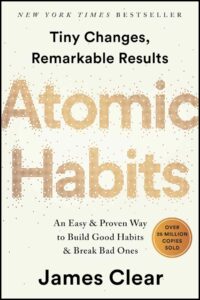
It’s kindness to our patients, but it’s also kindness to industry. I know we touched on that earlier as well. You never know the rep that you’re speaking to, what they can open for you in terms of doors. I lean so heavily on the teams that I work with in industry, like them obviously in portfolio planning and SLR too. These people get to know the reps not just as reps, but also as individuals. When they sense your genuineness, they are more open to wanting to help you succeed as well. I’m just so grateful, like all these opportunities I’ve come forward in the optometry space from speaking to reps and just even being on the podcast like this today. I think it comes from kindness. That’s my motto.
That was awesome. Thank you.
You’re welcome.
Thank you, guys. That was awesome. Now, actually, that was the question I meant to ask you. Thank you, Janice, for reading my mind and saying it anyway, but I wanted to ask you about the importance of industry partnerships throughout your career as you leaned into your specialty. Janice, you already gave me a little bit of that. Ying, if you want to share a few thoughts on that as well. How have industry and different industry partners in your space been helpful for you?
It’s something that I’m learning recently, like in recent years, the importance of connecting with industry, because, like you, I used to be the associate who just hid in the exam room when they came because it’s just easier that way. Now I’m really appreciating the values they bring. Honestly, they’re just really genuine and really nice people to talk to. Why not just go out and make your connection?
Reps have feelings, too. Thank you guys for sharing that. If you want to hear my thoughts on reps, go back and listen to the previous episode. I’m not going to repeat everything here because you guys have all heard it, but I definitely find those relationships extremely valuable, and I highly encourage everybody to please make sure you lean into those and leverage those relationships.
Any final words, anything we missed that you guys wanted to talk about? Any other questions I forgot because I started stepping on soap boxes? It’s your last chance. You know, when you give somebody an inner job interview and you ask them, “Any questions you want to ask me?” If they don’t ask you a question, I never hire that person. You’re never coming back on the podcast. I’m sorry.
I’m just kidding. One big round of applause if you don’t mind, please, for our amazing guests. That was much better than the first one. Thank you, guys. Another big thank you to our partners, Thea Pharma, Essilor Canada, Portfolio Planning, and FIGS. Thank you to our amazing audience. One more big round of applause for the audience and to everybody who’s listening and watching the show, Canada’s number one optometry podcast. We’ll see you guys in the next episode.
—
There you go, guys. That was part two of this two-part New Grad Live interview series that we did. Now here’s the Q&A from this second interview. Q&A, so questions about getting into specialty care, dry eye, myopia, or anything else, just as far as the journey. Any questions?
My question is for Dr. Luk. You mentioned that you set up a dry eye clinic where a clinic wasn’t already doing dry eyes. What equipment did you prioritize in getting in order to set up the clinic, dry eye clinic, or specialty clinic?
When it came to that specific clinic, I think every clinic has its own needs. To answer it broadly, you have to get to know the clinic. That clinic specifically had reached out. It’s Royal Oak Optometry in Victoria. That is actually the reason why I ended up moving to Vancouver Island and not Vancouver, which was because at that point, I had wanted to expand into a whole dry space even more. They were already looking for someone to come set this clinic up, but they didn’t have the actual individual.
For them they wanted RFIPL and more of the expensive devices, but that’s what their wish list was. Not every clinic benefits from an RF and IPL. Ultimately, speak to the owners, speak to the associates there too, because they’re the ones that have to refer into the practice. Ultimately, it’s a case-by-case basis, but for that specific clinic, RF and IPL were one thing that they were specifically looking to add to services.
That’s actually a really good point. Not every piece of technology, just because we hear RF and IPL or whatever, doesn’t mean it fits every practice. The practice has to be willing to feed into that because otherwise, sadly, there are people who spend a lot of money, practices that spend a lot of money to invest in the technology, and then it just collects dust. Any other questions? That’s a great question. Any other questions on specialty care? Safa.
My question is also for Dr. Luk. Patients with dry eyes often are asymptomatic. I was just wondering, at what point are you intervening and warning the patient down the line what could happen to their ocular health, so that it doesn’t get to a point where you have to take a larger approach in terms of treatment?
That’s a great question, Safa, and I think you answered it yourself. You already know that dry eye is chronic and inflammatory, and it’s something that if we don’t stop that cycle immediately, it’s just going to get worse. Usually, when I have a conversation with patients, it depends on their signs and symptoms. Yes, if they’re not symptomatic, they still could have signs, and then that’s where cameras or my biography images or other types of technology, we can lean on them to then explain to patients why they are having some issues. Just because they’re not symptomatic doesn’t mean we don’t talk about it. I think right away.
Dry eye is chronic and inflammatory. If we don’t immediately stop that cycle, it will only worsen.
Early intervention. Other questions.
Mastering The Digital Age: Building Your Social Media Presence
My question is for, I guess, all three panelists, but mainly for Dr. Ying, who mentioned setting up systems and building a social media presence. Could you tell us what your first steps were for, and what you found success in in terms of actually building a social media presence?
Just FYI, I don’t have a huge volume or anything, but I know I’ll get lazy if I don’t have a system. That’s what I was leaning into. I just try to brainstorm all these questions I get from my patients, and then I try to answer them in a way that’s not too jargon because I feel like sometimes we assume other people can understand the terms, but they don’t, so I just try to like really dumb it down to make it really available to the public. I think those were my two goals, and just try to post consistently, really. What about you, Janice? You are a pro on social media.
That’s very kind, but that’s definitely not the case. When it comes to social media, consistency, 100% is key. As annoying as you think you are, you just have to keep posting. My big takeaway with social media is you have to have fun with it because it’s almost like a second job. You have to go to the clinic, and then you finish, and then you want to go home, but then you’re like, “I have to post something for tomorrow.” You have to brainstorm.
For me, I don’t batch my reels. I actually create them probably the day before, and I’m editing in bed. It’s not a good system. However, I have fun with it. I find something trending like an audio, and then I just film something really quickly, and then I add text that I want to add. For me, it’s education as well. If you find something that you want to share with your audience and you think it’s insightful for them to learn about it or just to share that piece of knowledge, it makes the whole process just on brand for you and makes it fun and not just mundane and like a task you have to complete.
For me, so if I go back to the webinar that apparently was at least impactful for one person, which I’m very happy to hear, I had what I call three pillars for building your social media presence. Actually, it works with offline too, but the three things are provide value, engage, and consistency. Value to Ying’s point, every time she posts something, she’s answering a question. She knows that somebody has that question, or at least most of the time.
Sometimes you want to post a picture or whatever. It’s not a big deal. If you know most of the time you’re providing value, that’s why people are going to come back to you. There’s something that they’re taking away from you. It’s giving, engaging. If somebody comments, you respond, or you go out and you comment on other people’s stuff, and then consistency is consistency. I see every time I open Instagram, I see that the first thing that pops up is one of Janice’s posts.
Sorry.
No, it’s great. I love it. I envy and I aspire. These days, I’m lazy with social media. I don’t post nearly as much. Early stages, when I was starting to build social media, what I did was I challenged myself for 30 days to post a story like that. Today doesn’t sound like a big deal because stories are stories that go away after 24 hours on Instagram. I did 30 days. Every day I’m to post some educational story on Instagram. I ended up going for about 100 days straight. What happens when you do that is you learn, you have to scramble your brain, rack your brain for a new idea.
Sometimes it’s 11:00 PM. I got to put a hat on, because I was just about to lie down in bed, and I went to sit in the corner of my room, and I said something, because I want to stay true to my little challenge. Eventually, what happens is you just get so comfortable that you can just flip on the camera and say whatever you want, and you know it’s going to be okay. That’s something that I did, and I would just challenge you, and that comes back to I think the core thing here is consistency.
Expanding Horizons: Untapped Beauty Industries For Optometrists
My question is for Dr. Luk. You mentioned getting out of our comfort zone into other beauty industries. Other than LashCon, overall, what other beauty industries would you say it’s helpful for us to know? A lot of patients of ours do a lot of stuff with their eyes.
For sure. That’s a question I love because did everyone hear it? What other beauty trends can we tap into, or even other industries? With the beauty side of things, with the eye specifically, there are so many things. There’s your tattoo liner, there’s lash lifts, tints, there’s Botox. Speaking to dermatologists is actually quite a big one. Part of it is because it’s the skin around the eye area. A lot of people are actually manipulating. We’ve all seen that viral video where someone had filler or some derivative of a filler that caused blindness.
These are conversations where collaboration is important because ultimately it benefits the patient. There are so many conferences in the beauty space. It’s not just LashCon. There literally are things for lash lifts and tints. Knowing the differences between different types of lash lifts and tints is so important for how we can counsel our patients. Ultimately, the learning is endless, and it really does depend on you to do that deep dive to find these conferences that you want to go to and attend and learn from. If you really start looking, you don’t have enough time to go to enough of those.
I know I got on my soapbox earlier, and I got heavy with the whole profession and all this stuff. I’m very passionate about that, as you could tell. More for you as individuals, as human beings, to have a fulfilling career investigating a specialty or some dabbling like I do. We do a fair bit of dry eye, and I’ve been leaning more into myopia management.
You could choose at any point in your career. I started doing Ortho-K thirteen years into my career. It doesn’t have to be out the gate on day one, but I love Ortho-K. It’s like my favorite thing to do now. I’m looking for any opportunity to fit somebody in Ortho-K because of the feedback I’m getting from patients. I feel this far into my career, I have found something new that I feel so fulfilled with that I want to go to work, and I’m looking for those opportunities to have a good time and engage with my patients.
That’s another reason why finding some specialty care, what you love to do, it can be so fulfilling for you and help you love what you do. At the end of the day, again, you spent all this time in school, all these years, all this money. You want to love what you do, and this is a way to do that. Awesome, thank you guys, all done.
—
That wraps up the Q&A. I hope you guys enjoyed this whole interview, getting into specialty care and optometry, plus the Q&A afterwards. If you missed the first part of this live recording that we did, go back and listen to last week’s episode about getting into business ownership. Again, that one was also followed by a Q&A session. I hope you guys enjoyed it.
I want to say once again, a huge thank you to our sponsors, Thea Pharma Canada, for all their support in putting together this project, and Essilo Canada for all their support and Portfolio Planning as well. Huge thanks. We couldn’t have done this without them. Of course, all of you, everybody who’s listening and watching the show, Canada’s number one optometry podcast. We’ll see you guys in the next episode.
Important Links
- Dr. Ying Zhao
- Dr. Janice Luk
- Dr. Sarah Kirby
- Dr. Michelle Mann on LinkedIn
- Live Discussion: The Path to Business Ownership – Dr. Michelle Mann and Dr. Sara Kirby – Previous Episode
- Essilor Canada
- Thea Pharma Canada
- FIGS
- Avenue Eye Care
- Mount Pleasant
- Hollyburn Eye Optometry
- BCDO
- LashCon
- Atomic Habits
- Royal Oak Optometry
- Harbir Sian on Instagram
- Harbir Sian on LinkedIn
- Harbir Sian on YouTube
About Dr. Ying Zhao
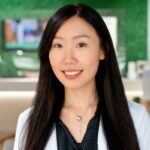 Dr. Ying Zhao is an Associate Optometrist at Avenue Eyecare. In this role, she provides comprehensive eye exams for patients of all ages, and has a particular interest in contact lenses. She has a wide array of knowledge on various disposable soft contact lenses, and is also certified to fit orthokeratology (“Ortho K”) lenses for myopia control.
Dr. Ying Zhao is an Associate Optometrist at Avenue Eyecare. In this role, she provides comprehensive eye exams for patients of all ages, and has a particular interest in contact lenses. She has a wide array of knowledge on various disposable soft contact lenses, and is also certified to fit orthokeratology (“Ortho K”) lenses for myopia control.
Dr. Zhao obtained a Bachelor of Science degree in Cell Systems Biology from the University of Toronto and a Doctor of Optometry degree from the University of California, Berkeley. During optometry school training, she completed clinical rotations in low vision, binocular vision, and contact lens at the Meredith Morgan Eye Center in Berkeley, California. In addition, Dr. Zhao has worked with renowned optometrists at the San Francisco Veterans Affairs and Palo Alto Veterans Affairs medical centers which strengthened her knowledge and experience with ocular diseases. Upon graduation, Dr. Zhao entered the retail industry and worked in the position of Managing Optometrist at Eye Exam of California, a role she held before moving back to Vancouver.
About Dr. Janice Luk
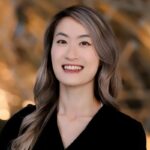 Dr. Janice Luk graduated with honours from the University of Waterloo School of Optometry. Born and raised in Toronto, she feels fortunate to practice in beautiful Vancouver, British Columbia. She has a special interest in dry eye disease, particularly at the intersection of beauty trends and cosmetics. She works closely with the lash industry and lash artists to raise awareness and provide education on how beauty practices can affect ocular health.
Dr. Janice Luk graduated with honours from the University of Waterloo School of Optometry. Born and raised in Toronto, she feels fortunate to practice in beautiful Vancouver, British Columbia. She has a special interest in dry eye disease, particularly at the intersection of beauty trends and cosmetics. She works closely with the lash industry and lash artists to raise awareness and provide education on how beauty practices can affect ocular health.
Dr. Luk has lectured at leading conferences including the Canadian Dry Eye Summit, the BC Doctors of Optometry Annual Conference, and the Lash Conference. She also collaborates with several eye care, contact lens, and pharmaceutical companies as a clinical consultant and educator.
She currently serves on the board of the BC Doctors of Optometry, where she chairs the Membership Committee. She is also a member of Canadian Women in Eyecare, was a team captain for Cycle for Sight in support of Fighting Blindness Canada, and has participated in fundraising initiatives including the Orbis Plane Pull and Homeless Connect. In her spare time, she enjoys snowboarding, hiking, road biking, and running.
Her contributions to Optometry have been recognized with awards such as the BC Doctors of Optometry Young Optometrist of the Year (2023) and the Eyes on Eyecare Optometry Innovation Award (2022).
Dr. Luk is also active on social media, where she shares insights on eye health, dry eye, and beauty trends. She can be found on Instagram at @ilukateyes.
